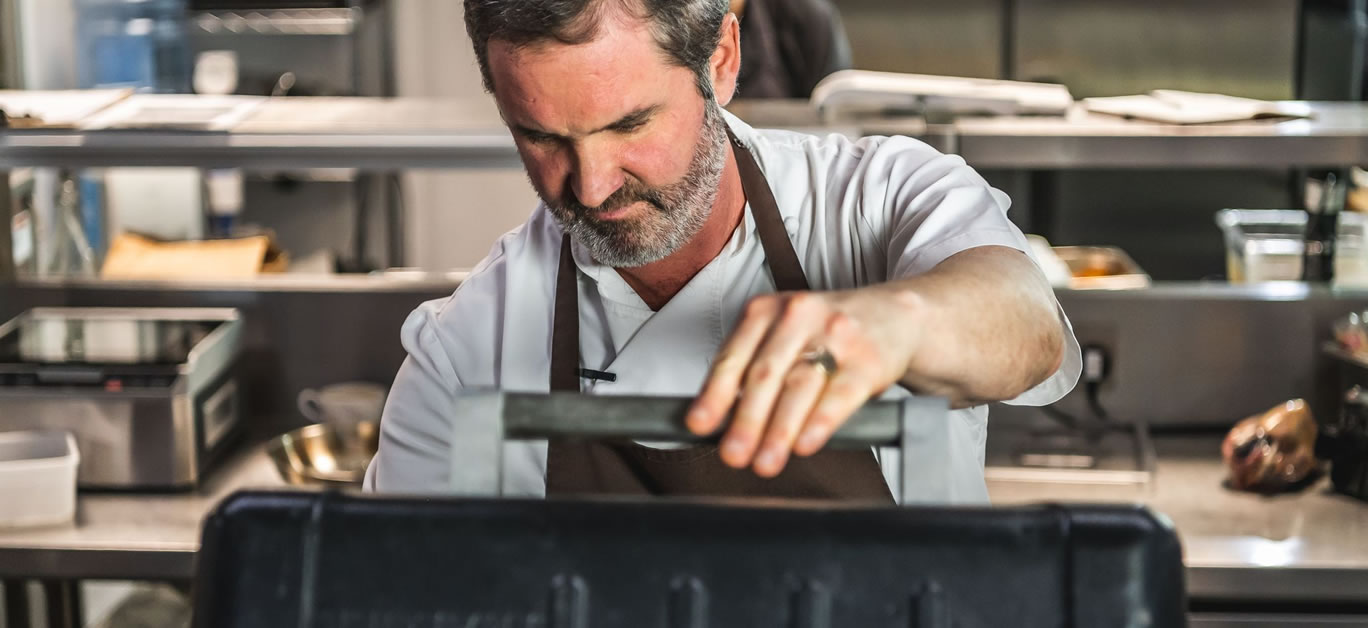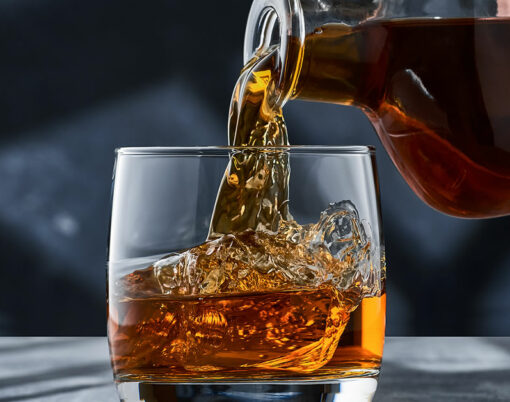Mike Robinson is a leading restaurateur and chef. Having started his career cooking as an apprentice in some of the best restaurants in the Savoie region of France, his flair for wild ingredients, culinary skills and ability to communicate led to a career in TV, where he presented several mainstream shows over the following decade.
In 2008, Mike opened the legendary Harwood Arms, London which has held a coveted Michelin star since 2010.
In a quest to harvest the finest ingredients for his dishes, Mike and his team also controls the wild game and boar on over 60,000 acres of private land in the UK and famously supplies his four restaurants – The Elder in Bath, The Woodsman in Stratford-Upon-Avon, The Forge in Chester and The Harwood Arms in London – with venison and sustainably sourced game meat.
Deer Box, his Venison management and supply business, now supplies over 3,000 people in the UK with venison delivered to the door, and over 50 top rated restaurants. Much of the venison served is still hunted by Mike himself, who is a passionate and seasoned hunter.
Mike’s TV work includes presenting ITV’s Countrywise Kitchen in the UK and he owns and runs the highly acclaimed ‘Mike Robinson Game Cookery School’. We caught up with Mike to find out more.
We sat down with the culinary heavyweight to find out a little more.
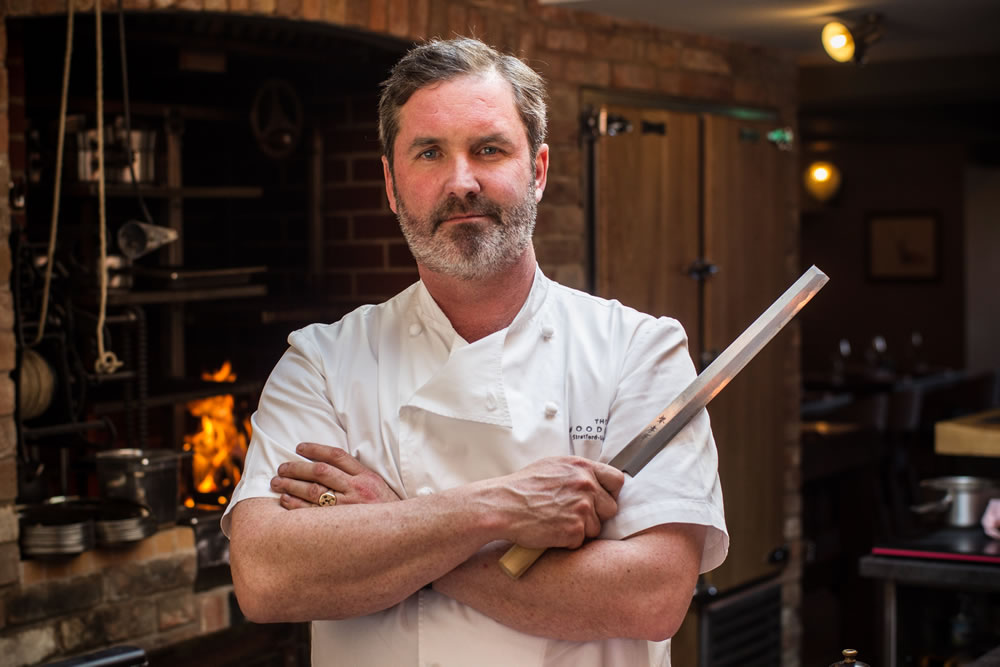
Can you tell us a little bit about yourself, including where you are today, professionally, and what got you here?
I have four restaurants, all specialising in wild sustainable food, dotted around the country. One of these, The Harwood Arms that I am the co-owner of, which we started nearly 15 years ago, is the only pub in London with a Michelin Star. We have had the star for 13 years now and we’re really proud of this.
I also part own Deer Box, which I’ve developed over the last four years, a company that’s specialising in managing, harvesting, processing and selling amazing sustainable wild venison in Britain. I also own Farming the Wild Productions, a company that makes four annual TV series for the US market on both fishing and sustainable hunting and the process of making amazing food out of wild sustainable produce. I make 40 episodes of TV a year for The Outdoor Channel in America and those are shown in 25 different countries.
What or who inspired you to become a chef?
I wouldn’t say there’s any one thing. I’ve always loved food and I’ve always loved the idea of hunter gathering my own food so there is a natural synergy between my two passions which have led me to be a wild game chef.
Who has been your biggest influence to get you to where you are today?
To quote Spike Milligan ‘I did it all myself’! I didn’t really have any great influences; I admire anyone in the restaurant industry who has done well and got ahead because it’s so brutally hard. It’s such a ruthless meritocracy that you only get good at it if you’re good at it, so I’ve concluded that anyone who does well as a restauranteur deserves the greatest admiration and respect.
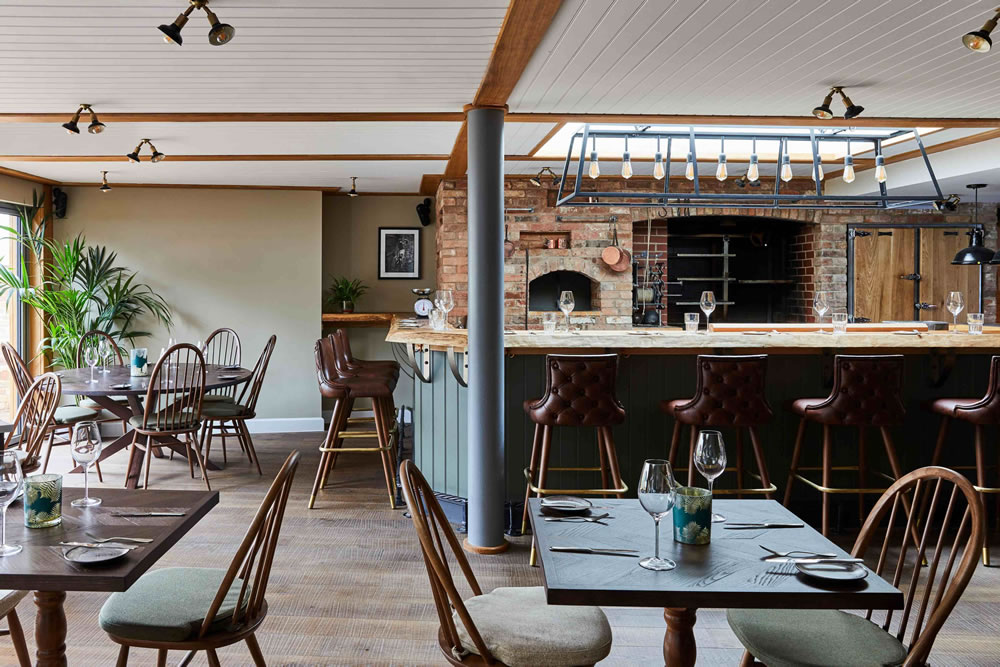
What’s your signature dish?
A pavé of wild fallow deer with dirty mash and grilled purple sprouting broccoli with deer gravy. Dirty mash is insanely filthy rich, 50 per cent fat and cream mash potato which is topped with venison sauce, savoury breadcrumbs and shredded deer meat. I’ve had variations of that on my menus for 20 years.
What are the most important considerations when crafting your menu?
Seasonality and balance are the two things that matter most. It has to be well balanced, delicious and look good.
Do your personal preferences influence the menu at all?
Very much so. I try to make sure I cook for the general public, but on the other hand the general public are coming to us for what we do. It’s not me, it’s my head chefs, I have amazing head chefs in all the restaurants.
How would you describe your cooking style?
Simple, hearty, consistent and elegant.
You cook a lot with Traeger Wood Pellet barbecues – why is that?
I love the depth of flavour you get using them. I’m a restaurant chef at heart and I love the utter controllability of them. I can cook to an exact temperature for an exact amount of time at the same time as getting smoke and flavour into things. It’s like an oven, only better.
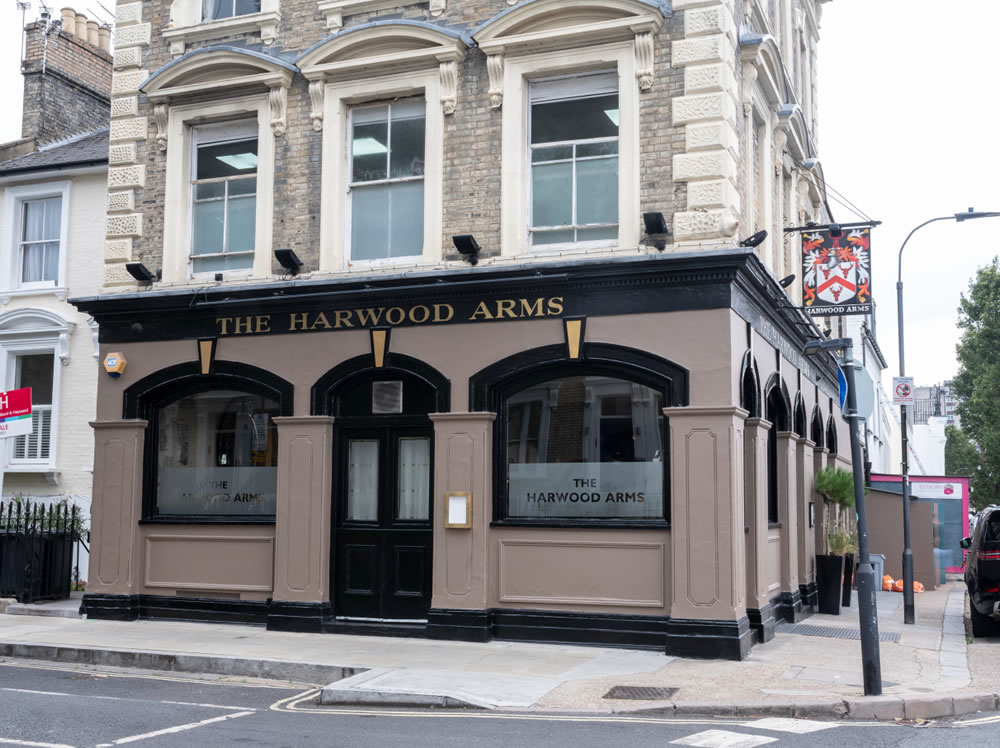
Do you have a favourite time of year or set of ingredients that you look forward to working with?
Every season presents its own benefits and challenges. We’re coming into spring now and there’s less wild game, so we’re looking more at fish and plants. The rhubarb is coming through and the wild garlic is about to arrive, there’s a whole new plethora of things that come through that we adapt our menus to. I love every season, but I particularly love the winter because I like the contrast of hearty delicious food, wild venison, rich sauces and cold days but I also like beautiful food in the summer that is elegant and light and tasty and appropriate.
What is your favourite ingredient to create with?
Without a doubt the fallow deer, it’s a wonderful animal. It is over abundant in Britain and is affecting biodiversity, it’s an environmental issue as it is so over populous. It is the most magnificent meat, it’s delicious and tasty, it yields well and there is an inexhaustible supply of it.
What would you be doing if you weren’t a chef?
Possibly a mountaineer, soldier or explorer. I love being a restauranteur more than I loved being a chef. What I love most of all is being an entrepreneur, I like the creation of business. Starting something out of nothing and seeing it grow and succeed is the ultimate satisfaction.
What is your favourite dish to cook at home?
It depends on the season, for example, in the late summer and early autumn, a lovely box of Cornish sardines grilled on the Traeger, sizzling in their own fat with lemon juice squeezed over them, is one of the biggest delights in the world. I cook a lot of sustainable fish at home and I like cooking Italian influenced dishes at home, Mediterranean food with lots of tomatoes, saffron and olive oil.
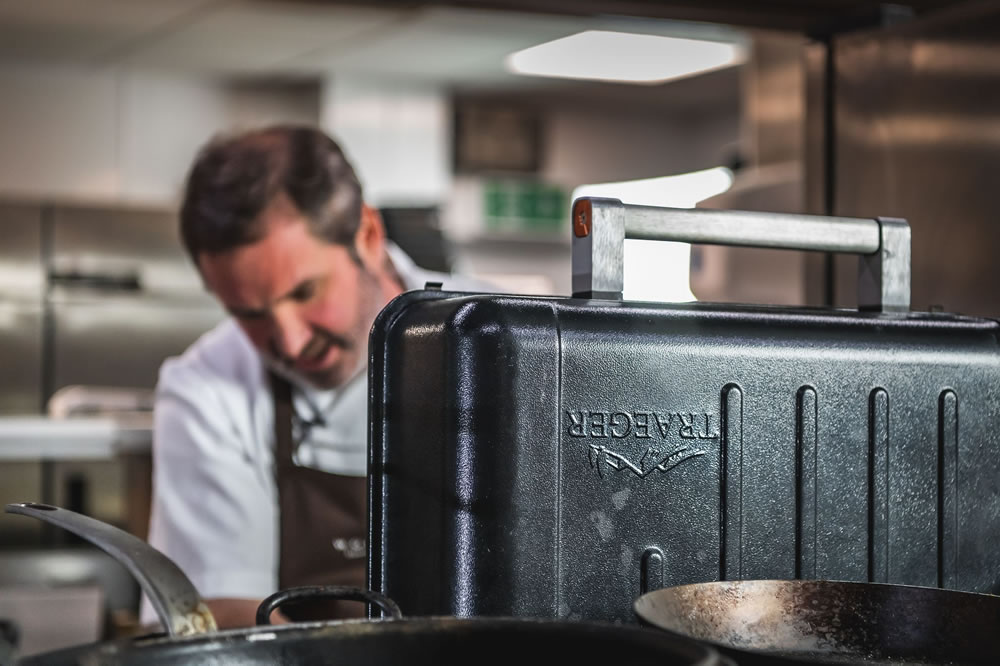
When are you happiest?
When I’m moving forward and doing new things. As soon as I feel like something is there I have to do something new, challenge is what makes me happy.
What is your favourite piece of kitchen equipment?
In a restaurant kitchen I love microplane graters and the Traeger Ranger Grill, they produce minimal smoke but they’re super powerful and hot and are amazing pieces of equipment.
When you’re not in the kitchen where can you be found?
I’m either out stalking deer or fishing. In the summer my passion is spear fishing, I go down to the south coast and spear fish for bass.
What’s your favourite takeaway or comfort food?
Definitely curry.
Where is your favourite place to dine?
I think the best place I’ve eaten this year was Fallow Restaurant in London.
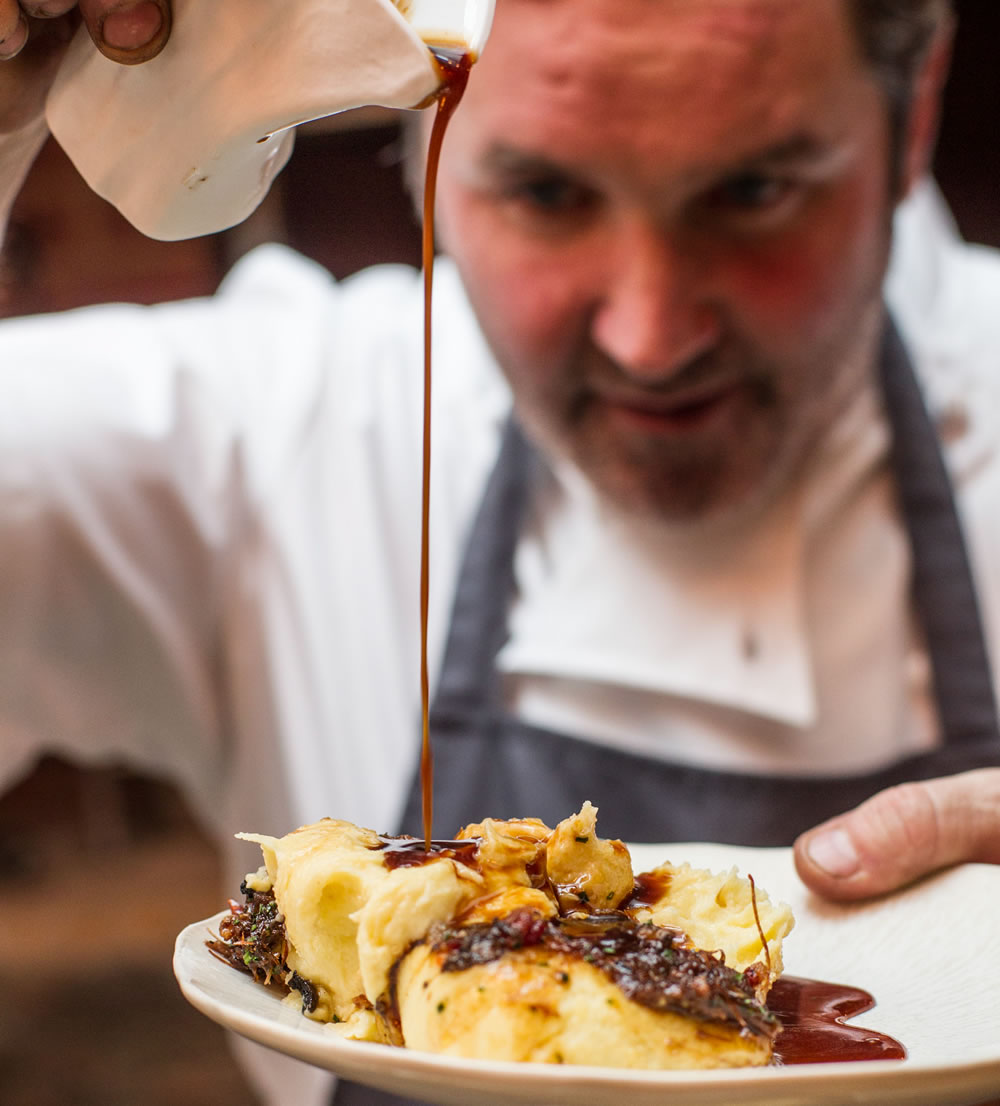
What do you think is the most over-hyped food trend?
I don’t really follow food trends!
What differences do you find working with local produce as opposed to non-local produce in terms of what you can create and flavour?
Local, seasonal, produce – if you build your menus around it – is hugely satisfying and it forces you to change regularly and keep adapting because you only get it when you get it.
How do you go about menu planning? What’s the process from picking the ingredients to getting them fresh into the kitchen and into dishes?
I’ve just been visiting The Woodsman and I will sit down every month and discuss the next menus. We look at what is coming in to season, whether we are doing more sharing dishes or more single plates, are we doing a tasting menu and things like that. It’s a team effort all the way down the line.
How would you describe the food you create at your restaurants to someone who’s never experienced your kind of food?
We love the flavours of smoke and flame, and we love the theatre that brings which is critical. We also love simplicity, seasonality and flavour which is our driving force.
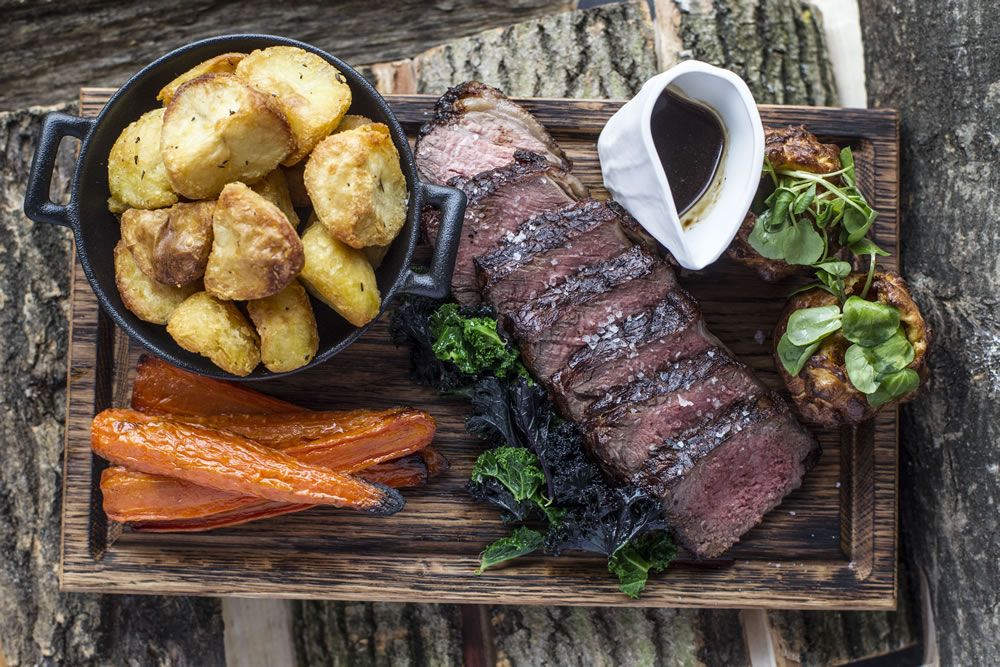
What’s your favourite flavour combination?
That’s an incredibly difficult question – it’s down to mood isn’t it? In the summer, without a doubt, it’s the flavours of olive oil, fish, saffron – a deep, rich, oily Mediterranean fish soup flavour – satisfying and delicious and sunny. In the winter I like the dark, moody, braised soups, stews and pies that you get with fish stock that give sticky textures in the mouth that are rich and decadent.
What is the USP of your restaurants?
Without a shadow of a doubt it’s the fact that we cook wild sustainable food that we have a hand in producing ourselves.
What do your future plans entail?
I don’t know and that is one of the joys of life. Life is like a thread you follow and it leads you in different directions. I’m a massive seeker of opportunity.












